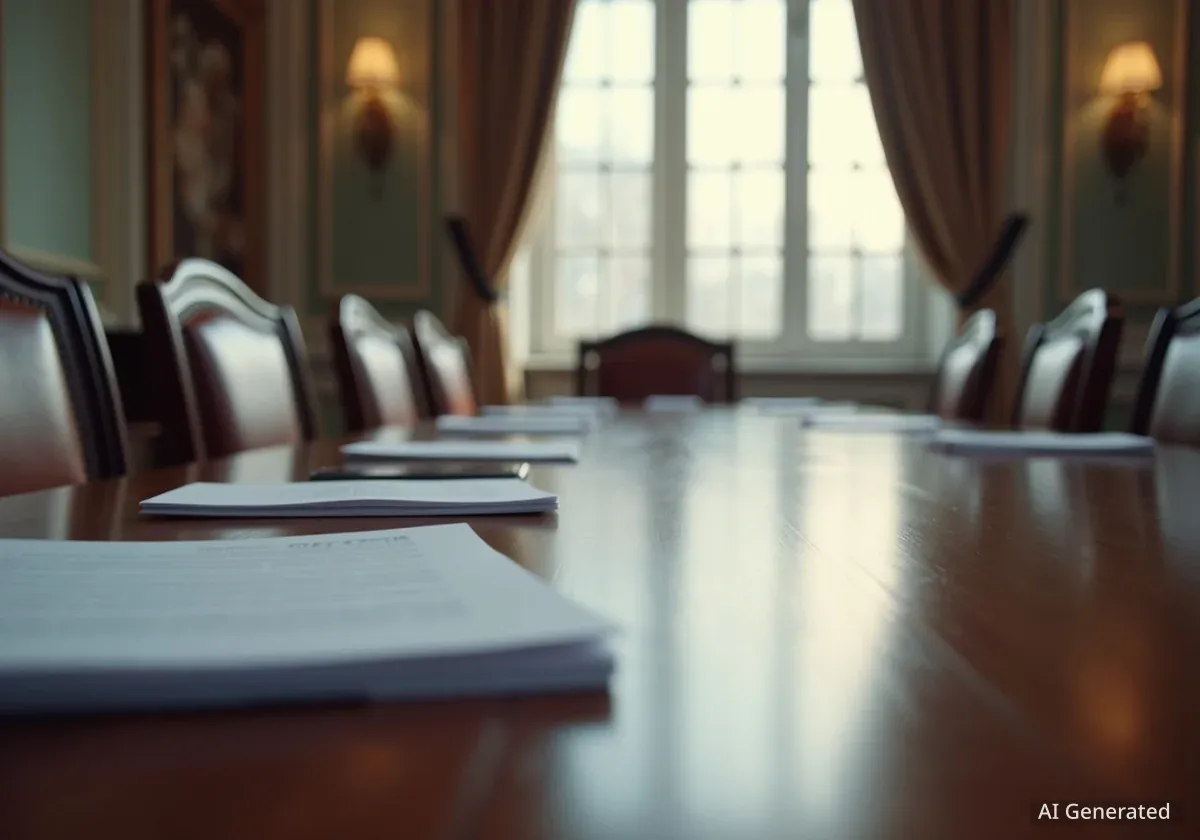The Nebraska Public Service Commission (PSC) has scheduled a formal hearing for October 14, 2025, to review a rate increase application submitted by Black Hills Energy. The utility company is seeking to raise its rates by $34.6 million, a proposal that would affect the fixed and distribution charges for its natural gas customers across the state.
Key Takeaways
- Hearing Date: The formal hearing will take place on Wednesday, October 14, 2025, at 9:00 a.m. CST.
- Rate Request: Black Hills Energy has applied for a $34.6 million increase in annual revenue.
- Affected Charges: The proposal specifically targets increases in fixed customer charges and distribution charges.
- Consumer Representation: Customers will be represented by the state-appointed Public Advocate during the proceedings.
- Decision Deadline: The PSC has until January 1, 2026, to issue a final decision on the rate case.
Details of the Proposed Rate Increase
On May 1, Black Hills Energy formally submitted its application, designated as NG-124, to the Nebraska Public Service Commission. The application requests a total revenue increase of $34.6 million. If approved, this adjustment would directly impact the bills of the company's natural gas customers.
The proposed changes focus on two key components of customer bills: the fixed customer charge and the distribution charge. The fixed charge is a flat monthly fee that covers basic service costs, while the distribution charge is a variable fee based on the amount of natural gas a customer uses. These are the primary rates regulated by the PSC.
Utility companies typically request rate increases to cover costs associated with infrastructure maintenance, system upgrades, operational expenses, and ensuring a return on investment for shareholders. Black Hills Energy will be expected to present detailed evidence justifying the necessity of the proposed $34.6 million figure during the hearing.
Understanding Utility Rate Cases
A rate case is a formal legal process where a regulated utility company must receive approval from a public commission before changing the rates it charges customers. The utility presents evidence to justify its request, and other parties, such as consumer advocates, can challenge this evidence. The commission's role is to balance the utility's need to remain financially stable with the public's interest in affordable and reliable service.
The Role of the Public Service Commission
The Nebraska Public Service Commission is an elected five-member body responsible for regulating specific industries within the state, including natural gas utilities. Its primary mandate in cases like this is to ensure that any rates charged to consumers are fair, just, and reasonable.
The commission will oversee the formal hearing, where commissioners will listen to testimony, review evidence, and ask questions of the involved parties. The proceedings are quasi-judicial, meaning they follow a structured format similar to a court trial, with sworn testimony and cross-examinations.
Following the hearing, the commissioners will deliberate on the evidence presented. According to the official timeline, the PSC has until January 1, 2026, to render its final decision. The commission can approve the request in full, approve a smaller increase, or deny the request entirely.
How the Formal Hearing Will Proceed
The hearing on October 14th is a critical step in the rate case process. It will begin at 9:00 a.m. CST and will be held in the commission's official hearing room. For those unable to attend in person, the PSC will provide options for online viewing, with details available on its website.
Participation in the formal hearing is restricted to the official parties involved in the case. This includes representatives and legal counsel for Black Hills Energy and the Public Advocate. Testimony and comments during this phase are limited to these parties, who will present their arguments and evidence for the official record.
Public Access to Information
The public can follow the case and access related documents through the PSC website. The case docket, NG-124, contains all filings, testimony, and orders related to the Black Hills Energy application. This transparency allows interested citizens to understand the arguments being made by both the utility and the consumer advocate.
Consumer Interests and the Public Advocate
A key figure in these proceedings is the Public Advocate. This individual is an attorney with specialized experience in natural gas matters, appointed by the state to represent the interests of residential and small-business customers. The Public Advocate's role is to act as a check on the utility's request.
The Public Advocate and their team will scrutinize the application from Black Hills Energy. Their work typically involves:
- Analyzing the financial data and justifications provided by the utility.
- Challenging any expenses they deem unnecessary or unreasonable.
- Presenting expert testimony to counter the utility's claims.
- Arguing for the lowest possible rate increase that still allows the utility to operate safely and reliably.
During the hearing, the Public Advocate will cross-examine witnesses from Black Hills Energy and present their own case on behalf of consumers. This adversarial process is designed to ensure that the PSC has a complete and balanced set of facts before making its final decision on the $34.6 million request.




